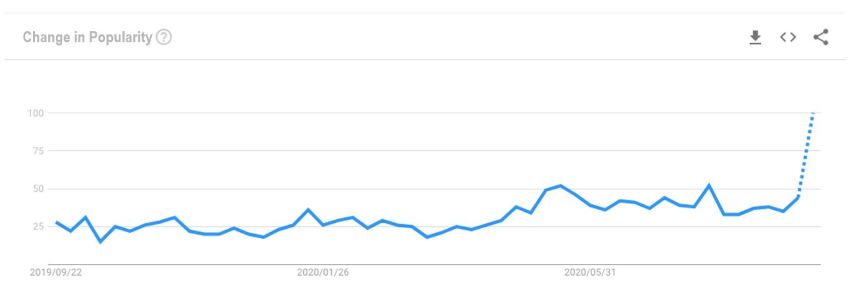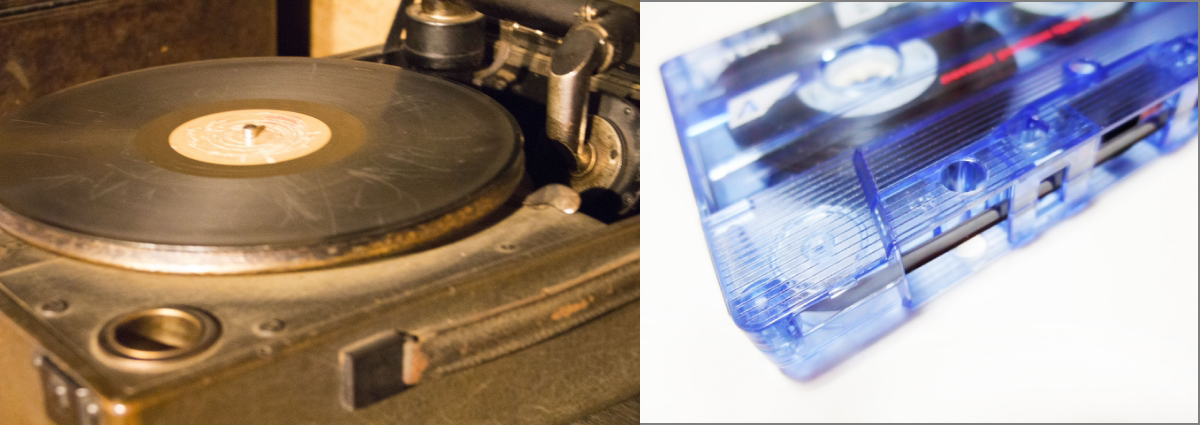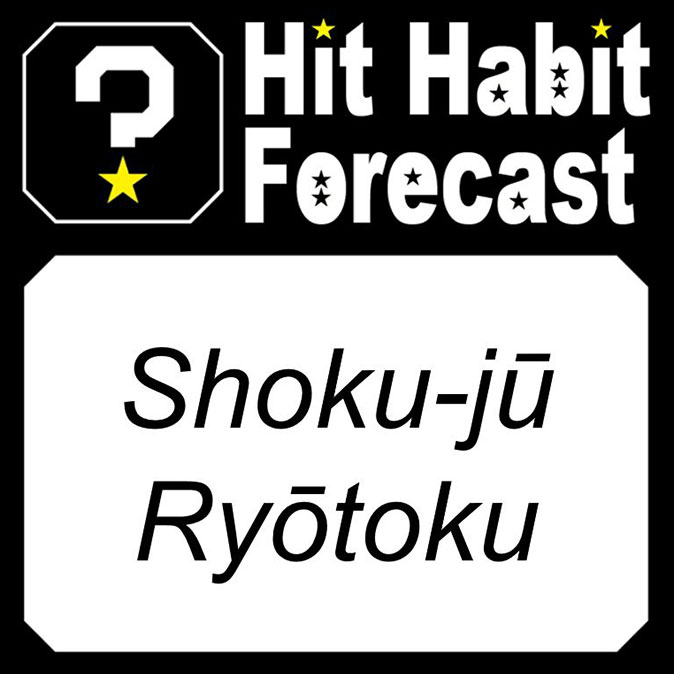- Viewpoints
Hit Habit Forecast is a regular column of the Hit Habit Makers, a group of young planners at Hakuhodo HQ that gamely stood up to say they were going to create hit habits—not hit products—as consumption shifts from purchasing things to purchasing experiences. Analyzing social media accounts and purchasing data of highly sophisticated users and conducting analysis on popular articles, etc. in a variety of media that have their fingers on the pulse of social trends: this is the bold, new challenge of forecasting hit habits that are about to break.

Hello. I’m Shun Murayama of the Hit Habit Makers.
The biggest change in the way people do their jobs these days is—you guessed it—remote working. Meetings are held and presentations are made online as a matter of course. Even working together on compiling presentation materials over the internet is no longer uncommon.
This experience testifies to how rapidly the digital shift has been happening lately in Japan. The government and the country’s four leading business organizations, recently issued a joint declaration calling for abolition of the practice of using seals on documents. As more and more businesses go paperless, etc., there can be no doubt that digitization will progress further.
Number of searches for “Dejitaruka” (digitalization)
 Source: Google Trends
Source: Google Trends
Digital communications, which first entered our everyday lives with the pager, have now evolved to the point where it’s perfectly normal to send messages anytime, anywhere, just by using an app—even if you’re a golden ager. You can take high-resolution photos on your smartphone and save them on the cloud, without having to develop them on an instant camera, or listen at once to any piece of music you want by subscription, without having to buy the CD.
Now that everything has gone digital, and even owning stuff is becoming less common than it used to be, people are starting to seek a new type of emotional, analog value that can’t be replaced by digital. That’s the topic of this installment.
Recently a news story about how US record sales during the first six months of 2020 exceeded CD sales for the first time since the 1980s created a buzz. Even though it’s easier to listen to music than ever before, there’s a trend toward enjoying the music you really love—the music that tugs at your heartstrings—on a record player, which produces an emotional effect that no amount of convenience can replace. After all, analog has a sound quality all its own. And as can be observed in Japan as well, that isn’t just happening among record aficionados from way back when; young people are beginning to fall in love with vinyl too. Hotels catering to millennials have record players in their rooms, while a shopping center in the youthful, trendy Shibuya district of Tokyo has just gotten a facelift and reopened complete with a record store. And it’s not just vinyl either. Cassettes, too, are coming back into their own. Just the other day a major manufacturer announced the release of a boom box with built-in Bluetooth functionality. (And cassette tapes really do sound great!)

Alongside records, diaries have also recently become a hot commodity. More and more young women choose to carry around a little diary, even though it’s so easy to manage your schedule on smartphone or computer these days. And what do they use that diary for? A quick perusal of posts on social media reveals the answer. While they use digital devices for organizing their work schedule, they use their diary to record their resolutions for the year, things they like, their personal schedule, things that made them happy or sad, and all kinds of other daily happenings. Digital may be adequate for purely functional schedule-management purposes, but when it comes to keeping track of special personal occasions or jotting down their feelings, they turn instead to a handwritten diary. Clearly, then, analog is starting to assume a new value in this era when digital reigns supreme.
Another analog activity showing signs of becoming popular is letter writing. It doesn’t serve, of course, as a form of communication for essential, everyday utilitarian purposes like arranging a drink with friends or contacting people on the job; rather, it’s a means of telling others what’s been happening in your life and sharing exactly how you feel. Online services that introduce people to pen pals appear to be seeing a surge in membership. And recently a pen pal project has been launched for junior and senior high school students unable to go to school due to COVID-19. University students write them back assuaging their fears and concerns.
Finally, photo printing services are popular among parents who wish to keep a pictorial record of their children’s growth, even though they can shoot all the photos they want on smartphone and store them online. However much digitization progresses, people want to own the photos they truly treasure in physical form, so they can hold them and feel them, rather than just look at them in digital format. Again, emotional, analog value is what they seek.
So far we’ve looked at various examples of this quest for emotional, analog value. But what’s the reason that it’s manifested itself now? One of the main reasons, in my view, is a backlash against digitization. Whereas digital has steadily met the need for functionality and convenience, it’s evidently not, at least now, up to the task of addressing people’s personal, emotional needs. What I find particularly interesting is this. It’s not that old folks, with fond memories of analog technology from the past, are reverting to it out of nostalgia. Young people brought up with digital technology likewise seek to possess analog objects of emotional value.
In one of my courses at university, I remember being taught that people have constantly oscillated between two extremes in the quest for a nonexistent golden mean. Such a pushback, it seems, is manifesting itself right now.
Finally, let’s briefly consider what business opportunities this pursuit of emotional, analog value might bring.
Examples of business opportunities capitalizing on emotional, analog value
■ An automobile retrofit service that electrifies antique cars to make them eco-friendly while preserving their emotional, analog value in their form of aura and smell
■ A pen-pal service offered by an online cram school to respond to students’ psychological concerns about their studies
■ A service that mails you a photo album of your latest trip, offered by a travel agent
And so on.
Lately, what with being stuck at home, I often spend the whole day staring at the computer only a few paces away from my bed. I’m therefore thinking of buying something that has an emotional appeal like an artwork or a plant so that I can get away from all the digital stuff!

Integrated Planning & Creative Division
Hakuhodo Inc.
He is involved in information strategy and planning for a variety of clients, from automakers to confectionery manufacturers. Having immersed himself in the same pub in the same town every day, he now wants to go drinking in unfamiliar pubs in unfamiliar towns and is currently researching possibilities.
















